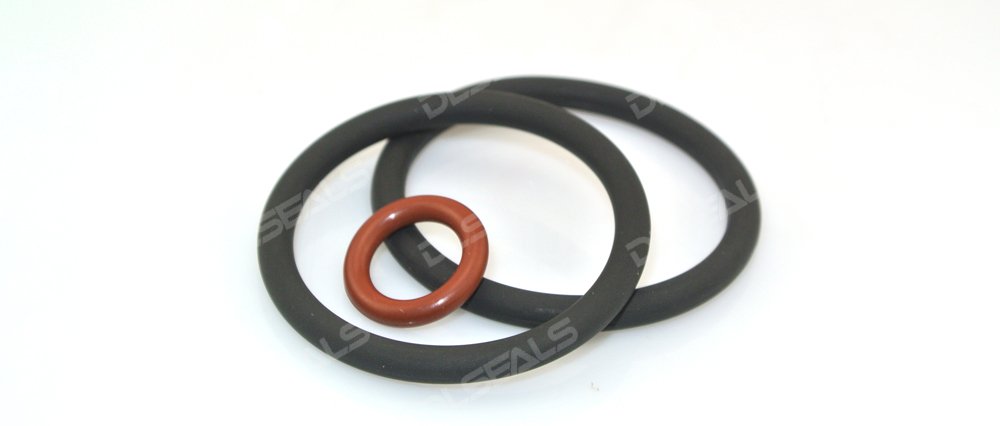In the demanding world of marine engineering, the reliability and durability of components are paramount. Among these components, nitrile rubber seals (NBR) have proven to be indispensable due to their exceptional resistance to oils, fuels, and a variety of chemicals. This case study explores the successful applications of nitrile rubber seals in marine environments, highlighting their advantages, real-world implementations, and the reasons behind their widespread adoption in this challenging field.
Understanding Nitrile Rubber Seals
Nitrile rubber, also known as Buna-N, is a synthetic rubber copolymer of acrylonitrile (ACN) and butadiene. NBR seals are renowned for their excellent resistance to petroleum-based oils and fuels, as well as their ability to withstand a broad temperature range from -40°C to +120°C (-40°F to +248°F). These properties make them particularly well-suited for marine applications where exposure to harsh conditions and corrosive substances is common.
Key Advantages of Nitrile Rubber Seals
1. Oil and Fuel Resistance
Nitrile rubber seals are highly resistant to oils, fuels, and other petroleum-based products. This resistance is crucial in marine environments where engines, hydraulic systems, and other machinery frequently come into contact with these substances.
2. Temperature Tolerance
Marine environments often subject seals to extreme temperatures. NBR seals can perform effectively across a wide temperature range, ensuring reliable operation in both hot engine compartments and cold underwater applications.
3. Durability
The durability of nitrile rubber seals translates to longer service life and reduced maintenance costs. Their robust nature allows them to withstand abrasive conditions and mechanical stress, making them ideal for marine use.
4. Cost-Effectiveness
Compared to other sealing materials, nitrile rubber offers a cost-effective solution without compromising on performance. This balance of affordability and functionality is essential for large-scale marine operations.
Real-World Applications of Nitrile Rubber Seals in Marine Environments
1. Engine and Transmission Seals
Marine engines and transmissions rely heavily on nitrile rubber seals to prevent oil leaks and ensure smooth operation. NBR seals maintain their integrity under high pressure and temperature, providing reliable sealing in critical components.
2. Hydraulic Systems
Hydraulic systems are integral to many marine applications, from steering mechanisms to deck machinery. Nitrile rubber seals are used extensively in hydraulic cylinders and pumps due to their excellent fluid resistance and durability.
3. Fuel Systems
Fuel systems in marine vessels require seals that can withstand prolonged exposure to diesel and gasoline. Nitrile rubber seals are commonly employed in fuel injectors, filters, and lines, ensuring leak-free operation and preventing contamination.
4. Water Pumps and Cooling Systems
Water pumps and cooling systems are vital for maintaining engine temperatures and preventing overheating. NBR seals are used in these systems to provide reliable sealing against water and coolant mixtures, ensuring efficient heat dissipation.
5. Cabin and Hatch Seals
Nitrile rubber seals are also used in cabin and hatch seals to prevent water ingress and protect against harsh weather conditions. Their flexibility and resistance to saltwater make them ideal for sealing doors, windows, and access panels.
Case Study: Nitrile Rubber Seals in Offshore Oil Rigs
Offshore oil rigs present one of the most challenging marine environments, with exposure to saltwater, extreme temperatures, and corrosive substances. Nitrile rubber seals have been successfully implemented in various applications on these rigs, including:
Blowout Preventers (BOPs): NBR seals ensure the integrity of BOPs, critical for preventing uncontrolled oil and gas releases.
Drilling Equipment: Nitrile rubber seals in drilling equipment prevent leaks and protect against abrasive drilling fluids.
Subsea Connectors: Used in subsea connectors, NBR seals provide reliable sealing in underwater applications where pressure and corrosion resistance are paramount.
Conclusion
Nitrile rubber seals have demonstrated their value and reliability in marine environments through numerous successful applications. Their resistance to oils, fuels, and chemicals, coupled with their durability and cost-effectiveness, make them an ideal choice for marine engineers and operators. As this case study highlights, the strategic use of NBR seals in marine equipment not only enhances performance but also ensures safety and longevity in some of the harshest conditions on Earth. Investing in high-quality nitrile rubber seals is a prudent decision for any marine operation aiming for optimal efficiency and reliability.
Post time: Jul-24-2024

